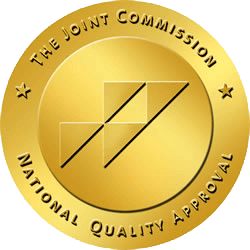Self-Injury Awareness Day is recognized internationally on March 1st. The event brings awareness about the prevalence of self-harm among individuals. Past research has shown that up to 4% of adults and 15% of adolescents acted out some form of self-harm. The increased self-injury rates among young people have caused Destination for Teens to address the issue.
What is Self-Injury?
Self-injury is an act a person takes to intentionally and repeatedly harm themselves. The behavior is often impulsive and not meant to take their life. Some of the most common methods of self-harm include:
- Cutting of the skin
- Banging the head against a surface
- Hitting
- Burning
Some people also harm themselves by:
- Scratching themselves to where they draw blood
- Punching an object or themselves
- Intentionally infecting themselves
- Drinking a harmful substance like detergent or bleach
- Breaking a bone on purpose
What Are Warning Signs of Self-Injury?
People who end up drawn to self-harming behavior are often dealing with mental health disorders. Individuals who self-injure do so because:
- They feel empty or unfulfilled
- They do not get enough mental stimulation or feel there is too much going on to process
- Want to avoid intimacy
- Feel unprepared for additional responsibilities
- They cannot express their emotions
Self-injury can be a way for an individual, often in the adolescent age category, to feel a sense of control over their body and mind. Engaging in self-harm can bring temporary relief and distraction from negative feelings. Warning signs to look for in someone who may harm themselves include:
- Seeing constant unexplained injuries like burns and cuts
- Problems expressing emotion or constantly shutting down
- Seeming to avoid forming relationships with others
- Difficulty functioning at school, work, or home
- Having low self-esteem
You may notice a friend or loved one trying to cover their arms, legs, or other body parts to hide signs of scars or bruises. That can include wearing long-sleeved clothing or pants when the weather is too hot for warm clothing. People who self-harm may come up with excuses for why they are always showing signs of an injury that become increasingly implausible.
How Does Self-Injury Awareness Day Help?
Self-Injury Awareness Day’s primary goal is to provide education and resources to anyone affected by the issue. That includes teenagers and adults who self-injure along with friends and loved ones looking for ways to help. Guidance from a mental health professional can be crucial in helping people overcome the disorder. Only a professional licensed to handle psychiatric issues should make any diagnosis. Other mental health disorders are often the root of self-harming problems, including:
- Personality disorders
- Bipolar disorder
- Major depression
- Psychotic disorders
- Anxiety disorders
Below is an overview of the criteria mental health professionals typically look for when making a formal diagnosis of self-injury:
- Signs of intentional damage done to the body without suicidal intent at least five times during the past year
- Indications that a person self-injures to find release from stress or to deal with emotional conflicts
- Harmful use of drugs and alcohol
- Signs of preoccupation with self-injury before acting
- Indications a person feels embarrassed or distressed by their self-harming actions
Raising awareness about self-injury can increase people’s understanding of the behavior. That can lead to heightened empathy around the disorder along. People who need help can feel more comfortable reaching out and finding the necessary support to overcome their issues.
Find Understanding About Self-Injuring Behavior
Destinations for Teens is a haven for adolescents looking for help with issues of self-injury. Our California drug treatment program offers the following therapy services:
- Cognitive-behavioral therapy (CBT)
- Dialectical behavior therapy (DBT)
- Family therapy
Learn more about the programs at Destinations for Teens by calling 877.466.0620.


